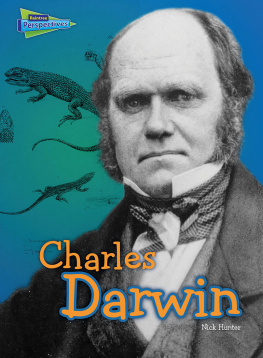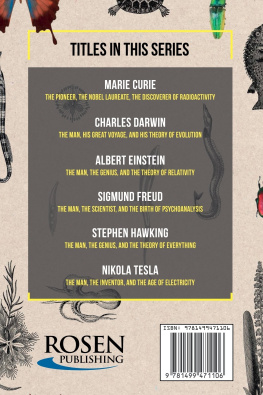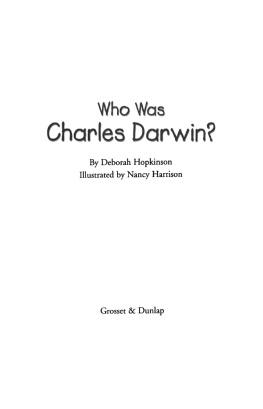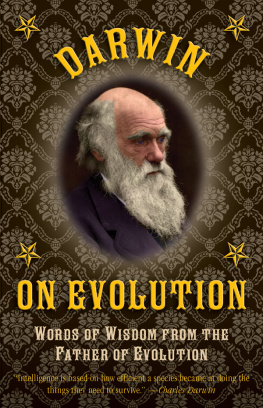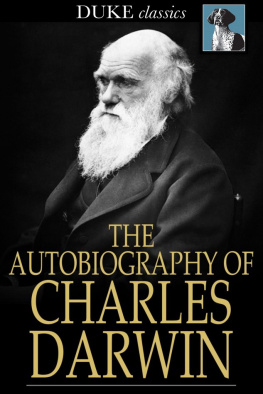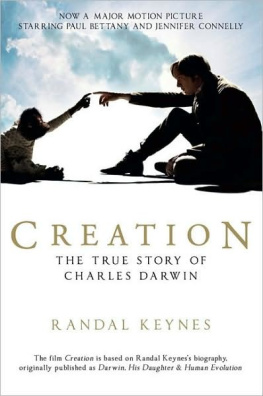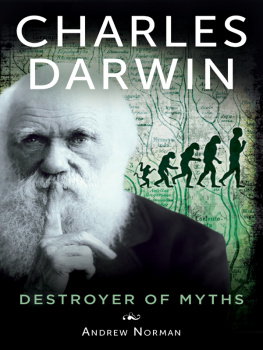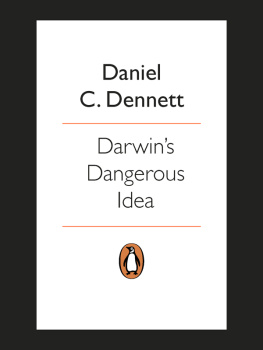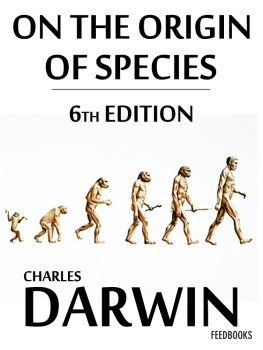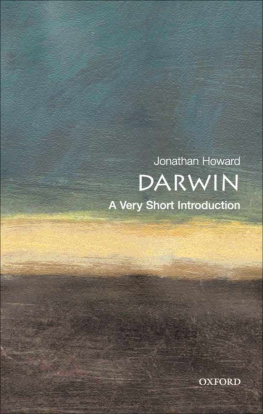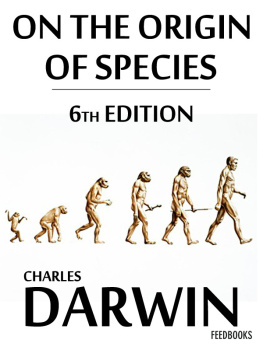Routledge Revivals
The Evolution of Charles Darwin
Charles Darwin is well-known throughout the world for his revolutionary work from 1859; The Origin of Species, the foundational study of evolution which greatly challenged the near-universal belief in the Christian world, at the time, of creationism. Originally published in 1928, Dorsey attempts to provide a detailed account of the scientists life and personality informed by letters, published works and an autobiography written by Darwin. Darwins life was full of challenges both in his personal life as well as his career and The Evolution of Charles Darwin explores all aspects of his life from birth to death emphasising the great impact his work had in the scientific community and humanity as a whole. This title will be of interest to students of evolutionary biology and history of science
The Evolution of Charles Darwin
George A. Dorsey
First published in 1928
by George Allen and Unwin Ltd
This edition first published in 2015 by Routledge
2 Park Square, Milton Park, Abingdon, Oxon, OX14 4RN
and by Routledge
711 Third Avenue, New York, NY 10017
Routledge is an imprint of the Taylor & Francis Group, an informa business
1928 George A. Dorsey
All rights reserved. No part of this book may be reprinted or reproduced or utilised in any form or by any electronic, mechanical, or other means, now known or hereafter invented, including photocopying and recording, or in any information storage or retrieval system, without permission in writing from the publishers.
Publishers Note
The publisher has gone to great lengths to ensure the quality of this reprint but points out that some imperfections in the original copies may be apparent.
The publishers would like to make it clear that the views and opinions expressed, and language used in the book are the authors own and a reflection of the times in which it was published. No offence is intended in this edition
Disclaimer
The publisher has made every effort to trace copyright holders and welcomes correspondence from those they have been unable to contact.
A Library of Congress record exists under LC control number: 27011192
ISBN 13: 978-1-138-12406-6 (hbk)
ISBN 13: 978-1-315-64838-5 (ebk)
ISBN 13: 978-1-138-12407-3 (pbk)
THE EVOLUTION OF
CHARLES DARWIN
By
GEORGE A. DORSEY
First published in Great Britain 1928
Copyright in U.S.A.
All Rights Reserved
Printed in Great Britain by Phototype Limited, Barnet, Herts.
To the memory of Sir Francis, third son of Charles and Emma Darwin, whose editing of his fathers letters makes it possible to understand the evolution of one of the greatest and noblest characters that ever lived
Mr. Darwins character was chiefly marked by a certain grand and cheerful simplicity, strangely and beautifully united with a deep and thoughtful wisdom, which, together with his illimitable kindness to others and complete forgetfulness of himself, made a combination as lovable as it was venerable. No man ever passed away leaving behind him a greater void of enmity, or a depth of adoring friendship more profound.
ROMANES
None have fought better, and none have been more fortunate, than Charles Darwin. He found a great truth trodden underfoot, reviled by bigots, and ridiculed by all the world; he lived long enough to see it, chiefly by his own efforts, irrefragably established in science, inseparably incorporated with the common thoughts of men, and only hated and feared by those who would revile, but dare not. What shall a man desire more than this?
HUXLEY
As an explanation of evolution Darwins ideas still hold the field to-day, and subsequent work has necessitated less modification of them than of those of his contemporaries in physics and chemistry. Just as physiology has found no case of interference with the order of nature as revealed by physics and chemistry, the study of evolution has brought to light no principle which cannot be observed in the experience of ordinary life and successfully submitted to the analysis of reason.
J. B. S. HALDANE
PREFACE
DARWIN came to manhood as a failure and for the remainder of his life struggled against illness, yet conceivably no one more benefited mankind and revolutionized human thought, or lived a more exemplary life. How was this possible? How could he so triumph over weak human nature as to make his life a pattern of serenity and his work an ideal of scientific endeavor? Darwin himself could not have answered, for he did not understand himself; but he did open the door to life, and made such an understanding possible.
To understand Darwin is to understand human beings. That must be my justification for this bookan attempt to describe a unique personality as seen through the door he opened to all who have eyes to see and whose vision is not narrowed by prejudice or restricted by convention. When that ever-increasing army of observers has ceased to observe, lifes secrets will have been bared and death will have lost its sting.
There were no secrets in Darwins life. The material available for observing the evolution of his personality is enormous. His own published letters fill several volumes, and his published works exceed seven thousand pages. To these must be added an extraordinarily valuable autobiographical sketch which he prepared for his family when he sensed the interest that would inevitably be directed toward him after death. Books about Darwin and his works fill libraries. Those which I have drawn upon freely and to which I am especially indebted, in addition to Darwins own works, are:
The Life and Letters of Charles Darwin. Edited by his son, Francis Darwin. 2 vols.
More Letters of Charles Darwin. Edited by his son, Francis Darwin. 2 vols.
A Century of Family Letters. Edited by his wife, Emma Darwin. 2 vols.
Life and Letters of Thomas Henry Huxley. By his son, Leonard Huxley. 2 vols.
Alfred Russel Wallace, Letters and Reminiscences. By James Marchant.
Charles Darwin and the Origin of Species. By Edward Bagnall Poulton.
Charles Darwin. Memorial Notices reprinted from Nature.
While the lines I have used from these books may not always be quoted with literal exactness, none, I believe, distorts the meaning of the author.
I am also greatly indebted to Sir Arthur Keith and to Major Leonard Darwin, son of Charles Darwin, for valued suggestions and advice.
GEORGE A. DORSEY.
New York City,
January, 1927.
CONTENTS
THE EVOLUTION OF
CHARLES DARWIN
THE EVOLUTION OF
CHARLES DARWIN
I F ONE speaks of immortal geniuses, one must 1 speak of Darwin; if one speaks of immortal discoveriees, one must speak of Darwin; if one speaks of revolutions in the basic concepts of of nature, one must speak of Darwin; and if one speaks of individual performances which have become part of human heritage and which have changed the course of all further human endeavor, one must speak of Darwin first. Therein is Darwins greatness. He was unique in the character and scope of his personality and the extent to which he changed the beliefs of the civilized world.





